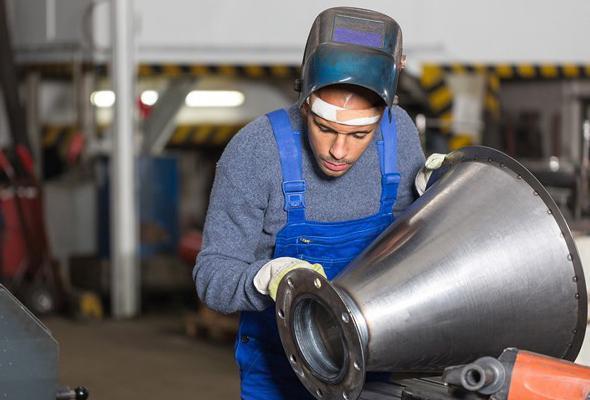In today's dynamic industrial landscape, the demand for components that perform flawlessly under extreme conditions is ever-present. Manufacturers custom alloy fabrication services frequently encounter situations where standard off-the-shelf materials simply do not meet the rigorous requirements of their applications. This often leads to compromised performance, increased downtime, and ultimately, operational inefficiencies that hinder overall productivity and innovation. The search for a reliable industrial metal works company capable of delivering specialized solutions becomes critical.
The challenges extend beyond mere material strength. Factors such as resistance to corrosion, high-temperature stability, wear resistance, and precise dimensional tolerances are paramount. Without expertly tailored solutions, businesses face premature equipment failure, costly replacements, and a struggle to maintain competitive edge. This is particularly true in sectors like aerospace, energy, and specialized manufacturing, where every detail impacts safety and operational integrity.
Many organizations grapple with the complexity of sourcing and integrating custom components. The process often involves intricate design considerations, specialized manufacturing techniques, and rigorous quality control. Navigating these complexities without dedicated expertise can be daunting, leading to project delays and budget overruns. The need for custom alloy fabrication services that can translate complex specifications into tangible, high-performance parts is undeniable.
Furthermore, the rapid pace of technological advancement means that material science is constantly evolving. Staying abreast of the latest alloy developments and fabrication techniques requires significant investment in research and development. Companies that lack this internal capability often find themselves limited by conventional approaches, unable to fully optimize their systems or introduce groundbreaking products. They need partners who can offer advanced metal works solutions.
Root Causes of Material Performance Gaps
- Insufficient Material Selection: Relying on generic alloys when specific environmental or operational stressors demand specialized properties, leading to rapid degradation or failure.
- Suboptimal Fabrication Processes: Using conventional manufacturing methods for complex geometries or high-performance alloys, resulting in structural weaknesses or dimensional inaccuracies.
- Lack of Design Customization: Failing to account for unique application demands in the design phase, forcing standard parts into roles they were not engineered to fulfill effectively.
Strategic Solutions for Enhanced Performance
1. Bespoke Alloy Development and Fabrication
One of the most effective ways to overcome material limitations is through the development and fabrication of custom alloys precisely engineered for specific applications. This involves a collaborative process where material scientists and engineers work closely with clients to understand the exact operational parameters, environmental factors, and performance expectations. By analyzing these critical inputs, a unique alloy composition can be formulated, offering superior properties compared to standard options.
This solution goes beyond simple material selection; it encompasses the entire lifecycle from concept to component. Directed Alloy Solutions excels in this area, utilizing advanced metallurgical techniques to create materials that can withstand extreme temperatures, corrosive agents, or intense mechanical stress. The result is a component that not only meets but often exceeds the required performance benchmarks, significantly extending operational lifespan and reliability.
2. Precision Engineering and Advanced Manufacturing Techniques
Even with the perfect alloy, its performance can be compromised without precise manufacturing. Implementing advanced engineering and fabrication techniques is crucial. This includes state-of-the-art machining, precision alloy welding, and additive manufacturing (3D printing) tailored for metals. These methods allow for the creation of complex geometries with incredibly tight tolerances, ensuring that every component fits and functions perfectly within its assembly.
Such precision minimizes material waste and optimizes the structural integrity of the final product. Techniques like laser welding and electron beam welding provide stronger, cleaner joints, essential for critical applications. This meticulous approach ensures that the inherent advantages of custom alloys are fully realized in the finished part, delivering unparalleled quality and operational efficiency.
3. Comprehensive Lifecycle Support and Material Upgrades
A holistic approach to material solutions extends beyond initial fabrication to include ongoing support and future upgrades. This involves providing expert consultation on material maintenance, repair, and potential enhancements as operational demands evolve. Regular assessments can identify opportunities to upgrade existing components with newer, more resilient alloys or improved designs, preventing obsolescence and extending asset utility.
This long-term partnership ensures that industrial systems remain at the forefront of performance. For instance, an alloy repair and welding services provider can restore damaged components to their original specifications, often enhancing their properties in the process. This proactive strategy helps companies adapt to changing industry standards and technological advancements, securing sustained operational excellence.
Potential Implementation Risks and Mitigations
- Complexity in Design Integration: Custom solutions can be intricate, requiring careful integration into existing systems. Recommendation: Engage early with expert structural metal fabrication contractors to ensure seamless design and compatibility.
- Initial Investment Outlay: Developing and fabricating specialized alloys may involve higher upfront costs. Recommendation: Focus on the long-term operational advantages and reduced maintenance, which often offset initial expenses.
- Extended Lead Times for Customization: Bespoke solutions naturally require more time for design, testing, and production. Recommendation: Plan projects well in advance and establish clear communication channels with your chosen custom steel and alloy design partner to manage expectations.


0 Comments:
Leave A Reply